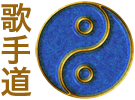Diva: From Merriam-Webster’s Online Dictionary
Origin of DIVA
What ever your religion or belief system, human beings have the ability to approach the divine. Whether you believe that God gave life to man by virtue of a breath, which gave him a piece of perfection; or that there is an oversoul (American Transcendentalism) that is part and parcel of every living being, all cultures celebrate the feats that makes a human being approach the miraculous, the God-like!
Would anyone claim that Jeremy Abbott or Jeremy Lin were so “gifted” that they did not have to work for their greatness? The work ethic of athletes is well-documented. Michael Jordan, perhaps the greatest basketball player of all time took great pains to debunk the entire myth of natural talent:
Yet despite all the recent books that prove that “nurture” trumps “nature” when it comes to talent, the business of opera and the lie of modern vocal pedagogy wants us to believe that the following is all “nature,” all “gift”!
One might be prone to belief such “giftige Meinungen” (poisonous opinions) if the great Kaufmann himself did not debunk it on his own website.
The great Jussi Björling, one of the greatest tenors in recorded history used to be angered when someone would suggest that his ability was a natural gift. “If they knew how hard I worked to be able to do this…”, he would say.
But this poisonous lie is convenient. With it, a voice teacher who cannot help a student can tell him/her that s/he is “not gifted.” A theory teacher who is not skilled at teaching a student the fundamentals of music will claim that the student has no aptitude.
I began studying Kung Fu and Tai Chi less than two years ago with a wonderful teacher, who had to nurse himself back to health after a near fatal accident in order to become a world champion in his discipline. Sifu Karl Romain’s teaching gave me confidence in my approach to voice. By doing the same Tai Chi form for nearly two years, every day following the same principles, I developed skills I did not dream of having in the beginning. And I am only beginning! The same is true of my vocal development. I know a ton of tricks that could make me sound polished but limited. I am not interested in that. I prefer to be awkward following sound fundamental principles than acceptable doing shortcuts and tricks.
My own fundamental principles of singing have guided me over nearly four years to develop abilities I had a hard time imagining I could truly attain. Today, at the end of an 11-hour teaching day, I felt balanced like I had never before and sang 12 of the most difficult arias I have ever attempted, including “Ah lo veggio…” from Così fan tutte, “Fuor del mar,” “Florestan’s aria,” “O lola…” and “Mamma, quel vino…” from Cavalleria, “Ah la paterna mano…,” “Tu che in seno agl’angeli”, and others.
After thousands of hours of repetition, the fade-away jump shot that made Michael Jordan famous, Jonas Kaufmann’s ability to sing any dynamic on almost any note in his range, Jeremy Abbott’s Quad Toe-loop, and yes my Tai Chi that gets more and more graceful and balanced every day, and yes my passaggio that gets more and more released every day making it possible for me to sing 12 big arias without feeling tired.
Real beauty of tone is a developed skill based on years of physical development and musical mastery. We belittle the great accomplishments of great singers when we reduce their skills to a gift that they supposedly did not work for, and we discourage passionate young singers from staying the course, if they consider themselves less gifted than their predecessors.
I would like to offer Mr. Kaufmann a Kashu-do Honorary Gold Bracelet for his honesty about his hard work and debunking the myth that great artistry is manifest destiny. I honor his honesty and artistry! Such a singer can truly be a model for the rest of us. Not because he is perfect but because he has accomplished miraculous things through hard work and he knows that to maintain his level, he needs to continue working hard.
If we can accept that normal human beings can accomplish amazing things through perseverance and hard work, then we can see the same possibility in ourselves. Great singers are not Gods, they are passionate people who emulate the divine!
© 02/21/2012

I don't like to flaunt my blog on your blog, but we seem to have similar thoughts on this issue. Maybe you will enjoy hearing my take on it. One thing holds true: Practice, practice, practice! Grüße!! Christine
http://christinesvoice.blogspot.com/2010/03/biellmann-bikram-and-me.html
LikeLike
You can flaunt your blog anytime Christine! I should follow more closely anyway! Just been so extremely busy! I will look it up! Thank you for sharing!
LikeLike
PS I also practice Bikram Yoga!
LikeLike
Yes, yes, YES! Thank you for posting this. One of the less endearing traits of earlier generations was the tendency to gloss over any and all difficulties when relating their stories in print. I was HUGELY grateful to Rene Fleming for being honest about the ups AND downs of her career. The divine (sorry, joke. I think.) Kaufmann gains similar respect for his honest approach. As you so rightly say, this strengthens those of us whose self-belief has come under fire, simply by knowing that huge and undeniable talents have had to leap the same hurdles.
I am grateful to you for posting!
Katy
LikeLike